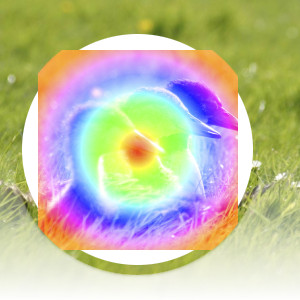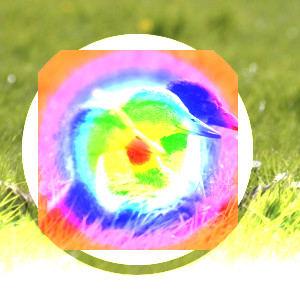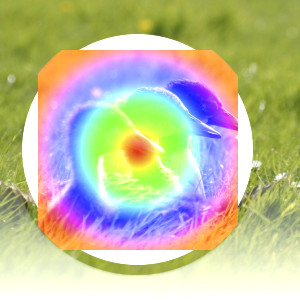The “Lighten” group contains layer modes that make the result lighter.
- Solo aclarar
-
Figura 8.14. Ejemplo para el modo de capa “Solo aclarar”
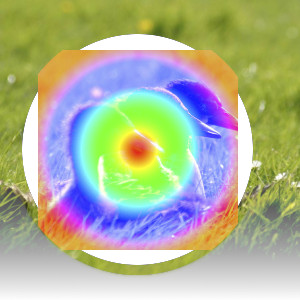
Top layer at 100% opacity using “Lighten only” mode.
El modo compara cada componente de cada píxel en la capa superior con el correspondiente de la capa inferior y usa el valor más grande en la imagen resultante. Las capas completamente negras no tienen efecto sobre la imagen final y las completamente blancas dan una imagen blanca.
The mode is commutative; the order of the two layers doesn't matter (except for transparent areas in the bottom layer).
- Solo aclarar luminancia
-
Figura 8.15. Example for layer mode “Luma/Luminance lighten only”
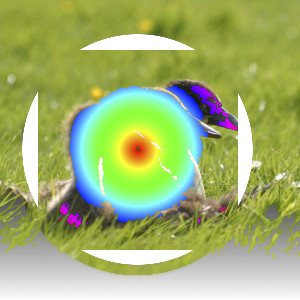
Top layer at 100% opacity using “Luma/Luminance Lighten only” mode.
mode compares the luminance of each pixel in the upper layer with the corresponding one in the lower layer and uses the larger value in the resulting image. Completely black layers have no effect on the final image and completely white layers result in a white image. Luma is the perceptual version of Luminance.
The mode is commutative; the order of the two layers doesn't matter (except for transparent areas in the bottom layer).
- Pantalla
-
Screen mode inverts the values of each of the visible pixels in the two layers of the image. (That is, it subtracts each of them from 1.0.) Then it multiplies them together, and inverts this value again. The resulting image is usually brighter, and sometimes “washed out” in appearance. The exceptions to this are a black layer, which does not change the other layer, and a white layer, which results in a white image. Darker colors in the image appear to be more transparent.
El modo es conmutativo: el orden de las capas no influye.
- Blanquear
-
Dodge mode divides the pixel value of the lower layer by the inverse of the pixel value of the top layer. The resulting image is usually lighter, but some colors may be inverted.
En fotografía, blanquear es una técnica que se usa en el cuarto oscuro para incrementar la exposición en áreas particulares de la imagen. Esto hace que aparezcan detalles en las sombras. Cuando se usa para este propósito, puede funcionar mejor trabajar en imágenes en escala de grises y utilizando una herramienta de pintura, en lugar de con el modo de capa.
- Suma
-
Addition mode is very simple. The pixel values of the upper and lower layers are added to each other. The resulting image is usually lighter. The equation can result in color values greater than 1.0.
El modo es conmutativo: el orden de las capas no influye.
